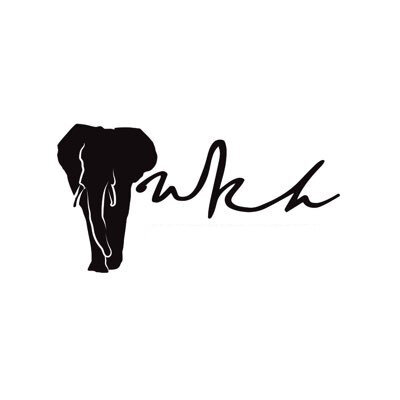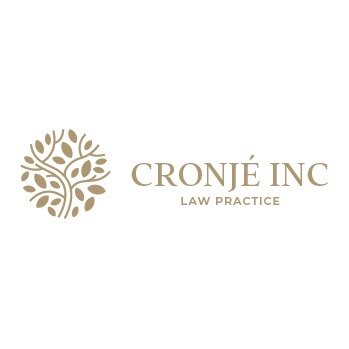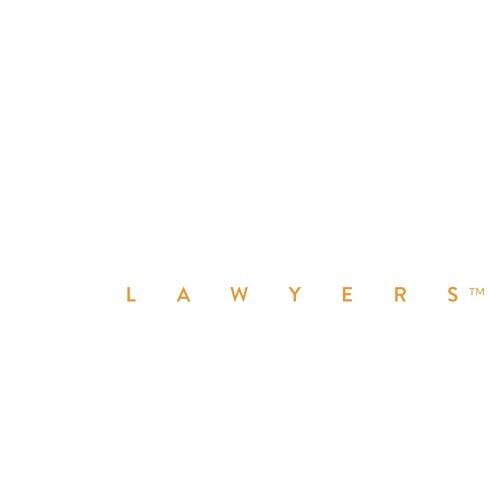Best FDA Law Lawyers in Namibia
Share your needs with us, get contacted by law firms.
Free. Takes 2 min.
Or refine your search by selecting a city:
List of the best lawyers in Namibia
About FDA Law in Namibia
FDA Law in Namibia refers to the set of legal and regulatory frameworks that govern the approval, distribution, marketing, and use of food, drugs, and related products within the country. The primary goal of FDA Law is to protect public health by ensuring that foods, medicines, medical devices, and cosmetics meet specific safety, efficacy, and quality standards before they are made available to consumers. The Namibia Medicines Regulatory Council (NMRC) is the main regulatory body responsible for overseeing pharmaceutical and allied product safety, while the Ministry of Health and Social Services plays a significant role in policy and enforcement.
Why You May Need a Lawyer
Navigating FDA Law in Namibia can be complex due to shifting regulations, detailed compliance requirements, and strict enforcement. Common situations where individuals or businesses may require legal help include:
- Registering a new pharmaceutical product or medical device
- Obtaining import or export permits for controlled substances or foods
- Responding to regulatory investigations or compliance audits
- Challenging the seizure or recall of products by regulatory authorities
- Understanding labeling and advertising restrictions for food and drug products
- Seeking advice on clinical trial approval and conduct
- Dealing with intellectual property and patent matters related to drugs and devices
- Handling disputes with regulatory bodies over product approvals or rejections
Legal professionals with expertise in FDA Law can guide you through these challenges, ensuring compliance with local laws and representing your interests before the authorities.
Local Laws Overview
The Namibian legal landscape related to FDA Law is shaped by several key statutes, regulations, and authorities:
- Medicines and Related Substances Control Act, 2003: This Act governs the registration, manufacture, import, export, and distribution of medicines and related substances in Namibia.
- Food Safety Laws: Various standards regulate the hygiene, labeling, packaging, and sale of food products, overseen by the Ministry of Health and Social Services and the Ministry of Agriculture, Water and Forestry.
- Namibia Medicines Regulatory Council (NMRC): Responsible for reviewing applications for registration of medicines, medical devices, and ensuring post-market surveillance.
- Customs Regulations: The import and export of pharmaceuticals and food products are subject to customs processes, including required permits and inspections.
- Advertising Controls: Strict rules apply to claims made about food and health products, governed by both sector-specific and consumer protection laws.
Compliance with these local regulations is essential for anyone involved in producing, distributing, or selling food and drug products in Namibia.
Frequently Asked Questions
What is required to register a new medicine in Namibia?
To register a new medicine, applicants must submit detailed information to the Namibia Medicines Regulatory Council, including evidence of safety, efficacy, quality, and manufacturing standards. Preclinical and clinical data may also be required.
Can I import dietary supplements without special permits?
Dietary supplements are often regulated as medicines or food products. The importation commonly requires permits and proof of compliance with Namibian regulations, including proper labeling and safety documentation.
How are food products regulated in Namibia?
Food products must comply with the Namibian Food and Nutrition Guidelines, adhere to labeling requirements, and meet hygiene and safety standards. Certain products may require approval or permits from the Ministry of Health and Social Services.
Are there restrictions on advertising health products?
Yes, advertising of medicines, medical devices, and health-related claims for foods is strictly regulated to prevent misleading information and ensure all claims are substantiated by evidence. Only certain claims are permitted under Namibian law.
What happens if a product fails regulatory scrutiny?
If a product is found non-compliant, authorities may order a recall, issue fines, or pursue legal action. The responsible party can typically appeal or respond to alleged violations with the assistance of legal counsel.
What is the role of the Namibia Medicines Regulatory Council?
The NMRC ensures that all medicines and related products meet safety, quality, and efficacy standards before they are approved for sale and monitors these products post-approval through various surveillance activities.
Are clinical trials allowed in Namibia?
Yes, clinical trials may be carried out but require approval from the NMRC and adherence to local ethics requirements as well as recognized international guidelines for good clinical practice.
How long does it take to obtain approval for a new drug?
Approval timelines vary based on the nature of the product, completeness of the application, and the review process. It can take several months or longer, so early legal consultation is advisable.
What are the penalties for violating FDA Law in Namibia?
Penalties range from fines to imprisonment, depending on the severity and nature of the violation. Authorities may also seize goods or revoke licenses of offenders.
Can foreign companies register products in Namibia?
Foreign companies can register products, but are usually required to appoint a local authorized representative and comply fully with Namibian regulations and documentation requirements.
Additional Resources
If you need more information or assistance regarding FDA Law in Namibia, consider reaching out to the following organizations and resources:
- Namibia Medicines Regulatory Council (NMRC)
- Ministry of Health and Social Services
- Ministry of Agriculture, Water and Forestry (Food Safety Division)
- Namibia Standards Institution
- Registered local law firms specializing in regulatory and health law
- Local business and industry associations for food and pharmaceuticals
Next Steps
If you require legal assistance with FDA Law in Namibia, here is a suggested process for moving forward:
- Identify your specific issue or concern, such as product registration, import/export, labeling compliance, or advertising.
- Gather all relevant documentation, including permits, product formulations, and previous correspondence with authorities.
- Reach out to a qualified Namibian lawyer or law firm with experience in FDA Law and related regulatory matters.
- Schedule a consultation to discuss your needs, risks, and possible solutions.
- Follow the legal advice provided and maintain clear records of all communications and submissions to regulatory authorities.
Taking early action and consulting an expert can help ensure compliance, prevent costly delays, and protect your interests in the complex field of FDA Law in Namibia.
Lawzana helps you find the best lawyers and law firms in Namibia through a curated and pre-screened list of qualified legal professionals. Our platform offers rankings and detailed profiles of attorneys and law firms, allowing you to compare based on practice areas, including FDA Law, experience, and client feedback.
Each profile includes a description of the firm's areas of practice, client reviews, team members and partners, year of establishment, spoken languages, office locations, contact information, social media presence, and any published articles or resources. Most firms on our platform speak English and are experienced in both local and international legal matters.
Get a quote from top-rated law firms in Namibia — quickly, securely, and without unnecessary hassle.
Disclaimer:
The information provided on this page is for general informational purposes only and does not constitute legal advice. While we strive to ensure the accuracy and relevance of the content, legal information may change over time, and interpretations of the law can vary. You should always consult with a qualified legal professional for advice specific to your situation.
We disclaim all liability for actions taken or not taken based on the content of this page. If you believe any information is incorrect or outdated, please contact us, and we will review and update it where appropriate.
Browse fda law law firms by city in Namibia
Refine your search by selecting a city.















